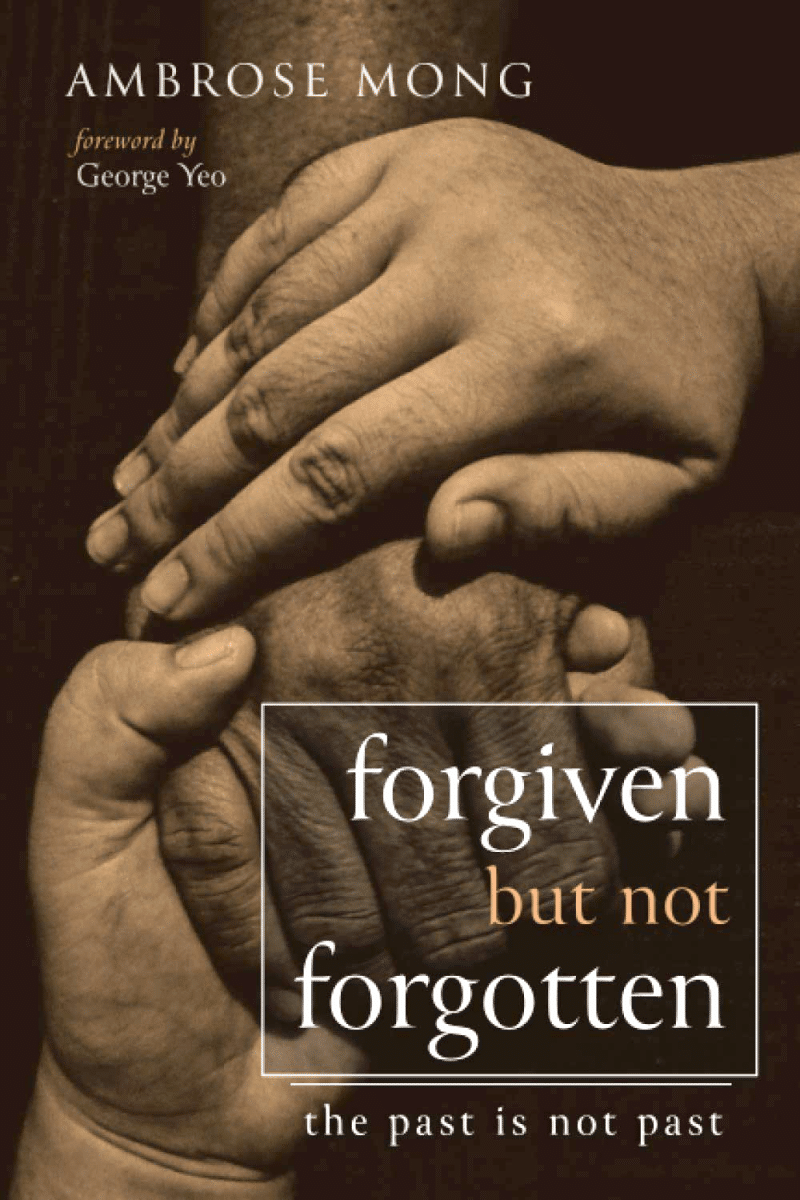
HONG KONG (SE): Forgiven but not Forgotten by Dominican Father Ambrose Mong explores issues of forgiveness and reconciliation in countries that have experienced political conflicts, civil war, and even genocide. Seeking to go beyond theory, it delves into case studies and initiatives taken to promote dialogue and reconciliation.
Father Mong argues that in many cases, religion can be a force for peace and play a significant role in resolving conflicts.
The book also scrutinises the connection between justice and forgiveness, stressing that there can be no peace without justice and no justice without forgiveness. Human justice is fragile the book observes thus, respect for rights and responsibilities must include forgiveness, in order to heal and restore relationships.
Father Mong notes that the book’s subtitle, The Past Is Not Past, is adapted from the line, “The past is never dead; it’s not even past,” from William Faulkner’s play, Requiem for a Nun, and also cites the aphorism attributed to Spanish philosopher and essayist, George Santayana: “those who cannot remember the past are condemned to repeat it.”

Forgiveness, in politics, is not about forgetting, the book notes, saying it is about how we remember events that have hurt us or killed our fellow brothers and sisters, so that the truth will set us free.
Forgiven but not Forgotten also looks at forgiveness at a personal level; as a process wherein injury or harm has been inflicted and must be acknowledged, and the offender held to account. It is when the wrongdoer is forgiven that they are set free from the negative psychological effects of the offence—something that normally occurs when the wrongdoer repents, suffers remorse, and apologises sincerely, though it is possible for the wronged party for forgive unconditionally anyway. Forgiveness, it notes, begins with the will to forgive and reaches fulfillment when all feelings of resentment, anger, and hostility disappear.
At the personal level, forgiveness is understood to be a process that recognises an injury has occurred and requires that the offence be acknowledged and the wrongdoer held accountable. By being forgiven, the wrongdoer is released from this. It is also possible for a person to forgive unconditionally without repentance on the part of the wrongdoer.
The book also observes that forgiveness lies within the power of the person who has been wronged. Reconciliation, however, requires the consent of both parties, the victim and the perpetrator.
Father Mong argues that “there is no future without forgiveness for many countries afflicted by decades of atrocities and violations of human rights. Many conflicts cannot be resolved with statecraft or political strategies.”
He goes on to note, “This has, therefore, created opportunities for local communities, non-governmental organisations and truth and reconciliation commissions, backed by the United Nations, to promote forgiveness as a remedy for societies traumatised by violence.”
In this case, forgiveness is not just a religious virtue but relates to how we cooperate with each other as a community.










